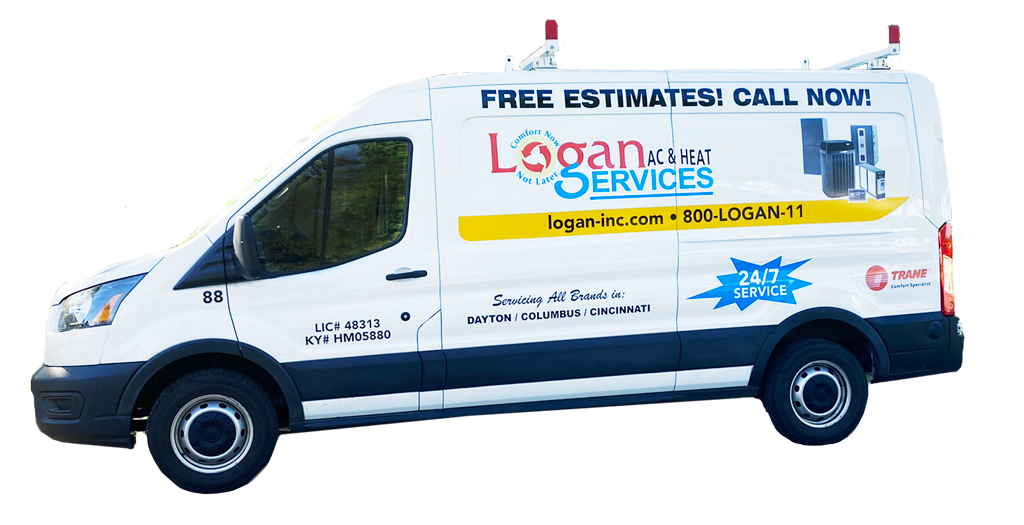Having your heat pump freeze up can be an incredibly frustrating experience, especially during cold winter weather when you rely on it the most. If you notice your heat pump is not blowing hot air or see signs of frost build-up, there’s a good chance it has frozen over. Don’t panic—the following sections will walk you through identifying the issues, professional repair solutions, and tips to prevent future freeze-ups.
Spotting a Frozen Heat Pump
Before doing anything, you must confirm your heat pump has frozen. Here are the most common signs your unit has ice blockages:
- Little to no hot air blowing from vents
- Frost or ice build-up on external heat pump unit
- High-pitched squealing or banging noises
- Thermostat cycling on/off frequently
- Higher than normal electricity bills
Compare the above-freezing symptoms against your system’s normal operating temperatures and sounds. Try setting the thermostat 3-5 degrees higher—if no warm air appears within 30 minutes, freezing has likely occurred.
As a temporary measure, use space heaters in the rooms where you spend the most time. But do not try to break apart ice yourself, as that can easily damage the heat pump.
What Causes Heat Pump Freezing?
Understanding what leads to heat pump freeze ups is key to preventing future issues. There are a number of common culprits behind winter evaporator coil frost and ice build-up, which can leave your home without sufficient heat when you need it most.
Multiple issues can lead to frozen heat pump evaporators, including:
- Low Refrigerant Levels: Not having enough refrigerant can reduce efficiency and lead to freezing. Refrigerant leaks are common over time.
- Dirty Filters or Coils: Clogged air filters or dirty outdoor coils prevent proper airflow and make systems work too hard in winter.
- Faulty Defrost Controls: Most heat pumps have defrost sensors and timers to prevent ice buildup; issues with these components can cause freezing problems.
- Cold Weather: In very low temperatures below 30°F combined with high winds, frost can accumulate faster than the defrost cycle can remove it.
- Age & Wear: Older heat pumps (over ten years) have accumulated wear and are more prone to freezing in harsh weather.
Diagnosing which of these common issues is the root cause of your frozen heat pump allows HVAC technicians to provide the proper repair solutions. Some causes, like extreme winter weather, are harder to avoid, making preventative maintenance even more crucial.
Safety First: Don’t Attempt DIY Repairs
If your heat pump freezes, leave heat pump repairs to qualified HVAC technicians. While trying quick fixes found online is tempting, improperly trying to thaw out a frozen coil can crack piping, leading to very costly repairs. For your safety, turn off the heat pump system at both the thermostat and the external switch or breaker while waiting for a technician. Only professional-grade refrigerant and pressurized equipment should be used for charging and clearing clogged heat pumps.
Avoid the temptation to chip away ice yourself around the coils—doing so can easily puncture piping and make leaks or other damage worse!
Professional Defrosting & Repairs
Once an HVAC professional arrives, they have specialized diagnostic tools and equipment to thaw and repair frozen heat pump systems safely:
- Refrigerant Charging: They check refrigerant pressures and levels, recharging if too low, which is a common cause of heat pump freezing issues.
- Coil Cleaning: Dirty outdoor evaporator coils can be deep steam cleaned by the HVAC technician and cleared of leaves/debris blocking airflow and heat transfer.
- Defrost Component Swap: Faulty defrost boards, sensors, contactors, and wiring issues are detected and replaced to restore automatic defrost functionality.
- Refrigerant Leak Repairs: Any small leaks in the coils, valves, or connecting refrigerant piping are located using dye and permanently sealed by the HVAC professional to prevent leaks.
- Drainage & Insulation Improvements: Enhanced insulation wrap and drainage provisions are added around the external cabinet to reduce re-freezing of melted ice.
Calling a qualified HVAC technician at the first signs of a frozen heat pump avoids prolonged downtime and secondary damage from DIY defrost attempts. The right repairs and overhaul will have your system running optimized.
Prevent Future Freeze-Ups
While even well-maintained heat pump systems can freeze occasionally due to extreme weather, you can take these preventative measures to avoid frequent winter freeze-ups:
- Change Filters Regularly: Clogged air filters reduce airflow efficiency significantly, making winter freezing more likely. Check and swap filters each month for cleaner heat pump operation.
- Clear Outdoor Unit: Use a leaf blower and shovel to keep the external heat pump cabinet free of snow, ice damming, and dead leaves that can block the air intake.
- Annual HVAC Inspections: Technicians can proactively catch and fix minor issues like refrigerant top-offs and coil cleaning before they cascade into major winter problems like freezing.
- Upgrade Older Units: If your heat pump is over ten years old, upgrading to a newer energy-efficient model is wise to avoid repeated freeze-ups and costly repairs.
Adding supplemental insulation wrapped around the outdoor heat pump cabinet and sealed base can also reduce cold air infiltration in harsh climates. Properly preparing your outdoor heat pump unit before winter arrives reduces the chances of frustrating frozen evaporator issues.
The Logan Difference
Bringing quality HVAC comfort home to our Ohio communities since 1969, Logan A/C & Heat Services has over 50 years of experience, specifically diagnosing and repairing frozen heat pump issues. Our expertise goes beyond just thawing out your vital heating system. We optimize long-term reliability, too.
As a family-owned, BBB-accredited business working with top brands like Trane and Rheem, we stand behind industry-leading service. Our team has an outstanding satisfaction rating for a good reason—we treat you like family and fix problems right the first time. Beyond repairs, our technicians provide education to prevent future freezing problems. We explain maintenance tips, insulation, and drainage options for your outdoor heat pump cabinet based on age and exposure. If warranted, investing in a newer unit is presented as a future upgrade path.
Contact Logan today to stop battling the cold and get professional heat pump solutions to keep your family warm all winter.
Frequently Asked Questions
What temperature does a heat pump freeze at?
Most heat pumps will begin to freeze over when outdoor temperatures drop gradually and remain below 30°F (-1°C) for sustained periods. Units can still freeze at higher temperatures during windy storms.
Can I prevent my heat pump from freezing on my own?
You can help prevent winter freeze-ups by changing filters monthly, clearing snow/leaves from the outdoor unit, and having annual maintenance done to optimize refrigerant and airflow. But the only way to truly freeze-proof a system is by upgrading older, inefficient heat pumps.
Is a frozen heat pump dangerous?
It’s not dangerous, but trying to thaw it yourself improperly can be! Cracked refrigerant lines or punctured evaporator coils from hacking ice away can make repairs extremely expensive. Safely turn off the system and call an HVAC pro.
How do I maintain my heat pump in winter?
Check/change filters monthly, clear debris from outdoor unit monthly, have HVAC technician do preventative maintenance in fall, consider extra insulation wrap if very cold climate, and run emergency heat if freeze suspected until repaired.
Why does my defrost cycle not prevent freezing?
If a heat pump frequently freezes despite having a defrost system, it likely has an issue like low refrigerant, dirty coils, faulty defrost controls, or significant weather exposure overriding its designed defrost cycle from properly functioning.

















